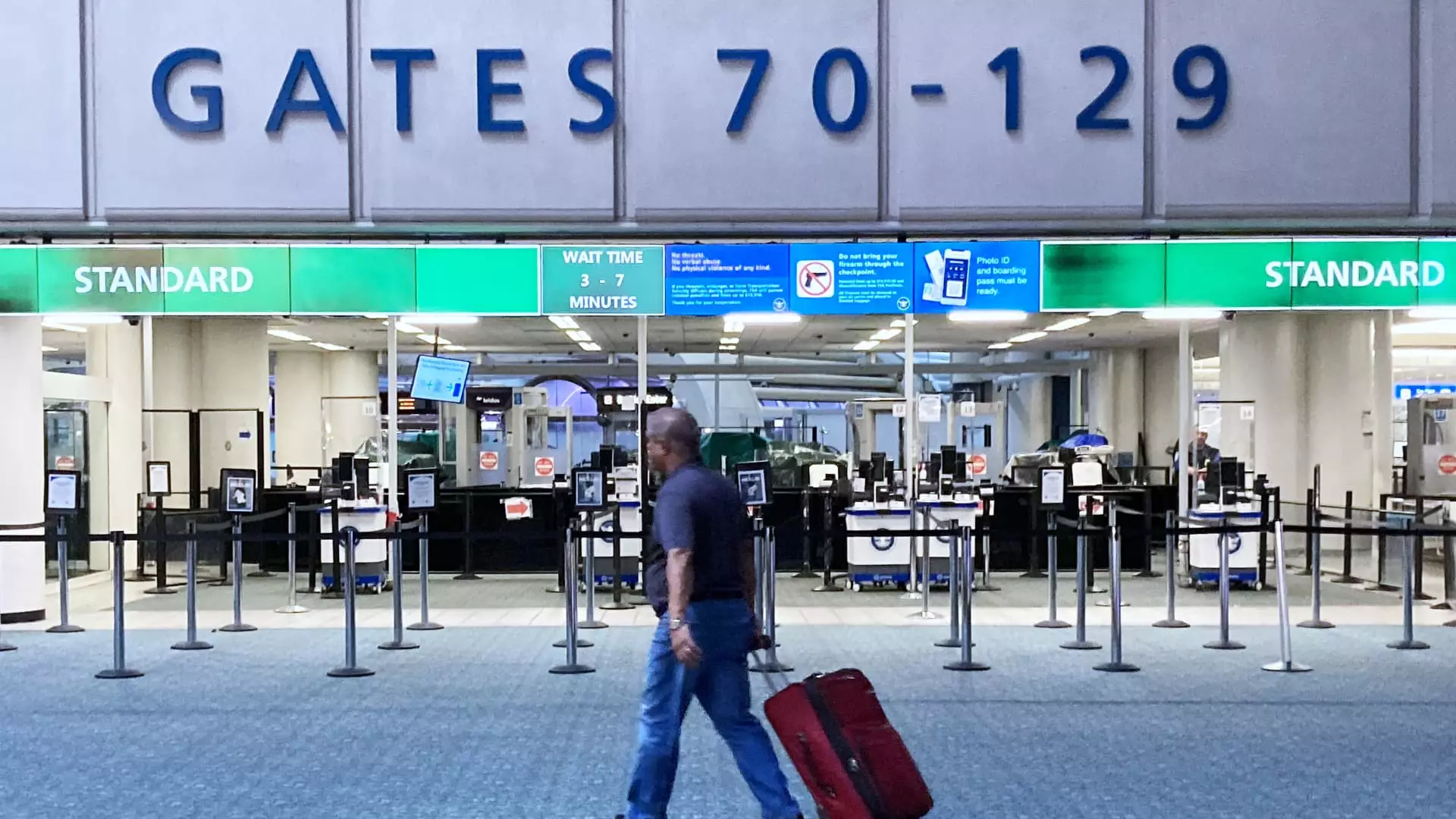As the holiday season approaches, the specter of a government shutdown looms large over the travel plans of millions of Americans. With lawmakers at an impasse, a short-term budget bill aimed at preventing discontinuation of funding for federal operations was recently rejected. This political stalemate could initiate a partial shutdown of government operations as early as 12:01 AM ET on Saturday if no agreement is reached. The stakes are high, particularly for those planning travel during one of the busiest periods of the year.
A government shutdown typically results in the furlough of hundreds of thousands of federal employees, many of whom play critical roles in ensuring public safety and maintaining daily operations. However, not all government workers will cease operations; certain personnel are deemed essential. For instance, air traffic controllers and Transportation Security Administration (TSA) agents will continue to work despite not being compensated during the shutdown. Administrator David Pekoske announced through social media that TSA officers would be required to manage the security of over 40 million passengers projected to travel through American airports during the holiday period.
Despite the uncertainty surrounding a potential shutdown, airlines are preparing for a record-breaking holiday travel season. United Airlines forecasts it will transport approximately 9.9 million passengers from December 19 to January 6, representing a remarkable 12% increase compared to the previous year. Furthermore, the TSA is bracing for unprecedented volumes of travelers, as it attempts to streamline security processes under potentially strained conditions. Should Congress fail to reach a consensus, longer wait times at airports may become a reality, as noted by TSA officials.
The last significant government shutdown, which lasted over a month from late 2018 to early 2019, serves as a cautionary tale. During that period, air traffic faced severe congestion due to the absence of numerous controllers, particularly over the busy airspace of the East Coast. While lawmakers eventually brokered a deal to terminate that shutdown, the operational chaos it induced has left an indelible mark on the airline industry and travel experience. With the holiday travel season being so critical to airline revenue and customer satisfaction, the ramifications of another shutdown could be felt long after the government reopens.
Compounding the current turbulence is the precarious state of the Federal Aviation Administration (FAA). With the resignation of FAA chief Mike Whitaker set for January 20, the federal agency is left without a permanent leader at a pivotal time. Delta Air Lines CEO Ed Bastian emphasized the importance of prioritizing modernization of air traffic control systems and enhancing the recruitment of air traffic controllers, especially if one expects to manage the expected influx of travelers more effectively during the holidays and beyond.
The potential government shutdown is a pressing issue that could have far-reaching consequences for holiday travel in the United States. Stakeholders, from government employees to airline executives, are bracing for the fallout, with each passing moment underscoring the importance of bipartisan cooperation during a time when national interest and public safety are at stake.


Leave a Reply